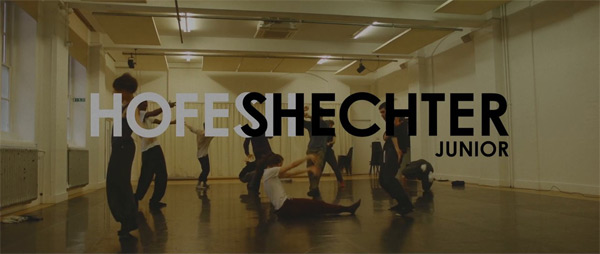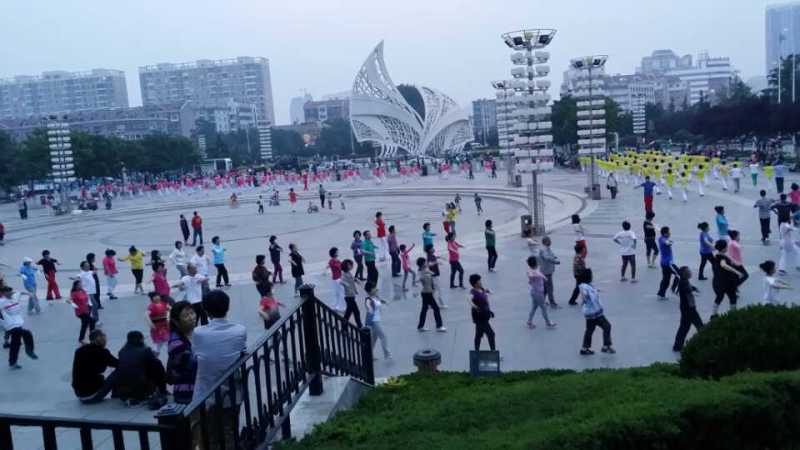 The end of March saw the iconic Robert Cohan CBE, the father of British contemporary dance, celebrate his 90th birthday. As part of the celebrations, The Place announced the inaugural Cohan Lecture and re-launch of the Cohan Scholarship at the gala event on Thursday 26 March, and again on Friday 27 March when the event was open to the public too. The special gala event celebrated the immense contribution the legendary choreographer continues to make to dance in the UK, premiering a new work choreographed for 2015 on Liam Riddick of Richard Alston Dance Company.
The end of March saw the iconic Robert Cohan CBE, the father of British contemporary dance, celebrate his 90th birthday. As part of the celebrations, The Place announced the inaugural Cohan Lecture and re-launch of the Cohan Scholarship at the gala event on Thursday 26 March, and again on Friday 27 March when the event was open to the public too. The special gala event celebrated the immense contribution the legendary choreographer continues to make to dance in the UK, premiering a new work choreographed for 2015 on Liam Riddick of Richard Alston Dance Company.
The Place’s lecture series aims to cultivate lively debate around topical issues, named as the Cohan Lectures, in honour of the lively and enquiring mind of its founding Artistic Director and Patron, Robert Cohan. The first of these, entitled ‘What Matters?’, will see two of the great creative thinkers of our time, Sir Ken Robinson and Cohan, debate this question on Thursday 11 June at The Place. The lectures will run annually, inviting high profile speakers from a broad range of industries and backgrounds to continue this debate.
The re-launched Cohan Scholarship aims to support driven, talented students at London Contemporary Dance School who are in their final year, at the brink of their professional careers, to realise their potential. With donations made by supporters and guests in advance of the event, over £18,000 has already been raised, and the fund is now open for future donations. The scholarship is a way of making sure talents are excelled and potentials as independent artists are realised. The Cohan Scholarship will be awarded annually to students from London Contemporary Dance School’s BA Hons programme to support their training. The scholarship will support named students with exceptional potential in performance.

 Amazon has upped its presence in the theatre marketplace recently, announcing it will now sell theatre tickets, becoming further involved with the artistic industry. As a giant global retailer, Amazon appears to see UK theatre – and specifically the West End – as an area into which it can expand.
Amazon has upped its presence in the theatre marketplace recently, announcing it will now sell theatre tickets, becoming further involved with the artistic industry. As a giant global retailer, Amazon appears to see UK theatre – and specifically the West End – as an area into which it can expand. The internationally renowned Hofesh Shechter Company recently announced the launch of its new company, Shechter Junior. This new venture, providing resource for aspiring professionals, is an apprentice programme for talented, young dancers between the age of 18 and 25 years old. Shechter Junior emerged from Hofesh Shechter and his Company’s commitment to nurturing young artists and creating opportunities for them to gain professional experience in a financially challenged arts scene.
The internationally renowned Hofesh Shechter Company recently announced the launch of its new company, Shechter Junior. This new venture, providing resource for aspiring professionals, is an apprentice programme for talented, young dancers between the age of 18 and 25 years old. Shechter Junior emerged from Hofesh Shechter and his Company’s commitment to nurturing young artists and creating opportunities for them to gain professional experience in a financially challenged arts scene. The Edinburgh International Festival has announced its 2015 programme, including some exciting dance highlights. These include Sylvie Guillem, Israel Galván, Zürich Ballet and Les Ballets C de la B. This year’s festival runs from 7-31 August, and is an artistic delight for all culture vultures.
The Edinburgh International Festival has announced its 2015 programme, including some exciting dance highlights. These include Sylvie Guillem, Israel Galván, Zürich Ballet and Les Ballets C de la B. This year’s festival runs from 7-31 August, and is an artistic delight for all culture vultures. It has recently been reported that the millions of people who gather to dance in China’s public spaces will have to keep time with government regulations in future. In a country where censorship and strict regulations are in place as the norm, it seems this could spell the end for public square dancing in China, simply providing citizens with a small artistic outlet for themselves in a public space.
It has recently been reported that the millions of people who gather to dance in China’s public spaces will have to keep time with government regulations in future. In a country where censorship and strict regulations are in place as the norm, it seems this could spell the end for public square dancing in China, simply providing citizens with a small artistic outlet for themselves in a public space.